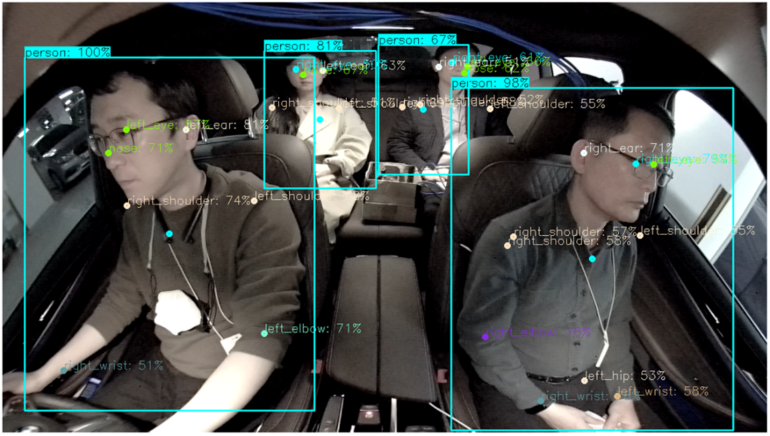Depending on which late-model vehicle you own, your car might be watching you – literally and figuratively – as you drive down the road. It’s watching you with cameras that monitor the cabin and track where you’re looking, and with sensors that track your speed, lane position and rate of acceleration.
Your car uses this data to make your ride safe, comfortable and convenient. For example, the cameras can tell when you’ve been distracted and need to bring your attention back to the road. They can also identify when you are speeding by verifying the speed limit from your GPS position or traffic signs along the road and warn you to slow down. Some carmakers are also beginning to incorporate similar features for convenience, such as unlocking your car by scanning your face or fingerprint. Your car may also transmit some of this data to the manufacturer’s data centers, where the company uses it to improve your driving experience or provide you with personalized services.
In addition to providing these benefits, this data collection is a potential privacy nightmare. The information can reveal your identity, your habits when you’re in your car, how safely you drive, where you’ve been and where you regularly go. A report by the Mozilla Foundation, a nonprofit technology research and advocacy organization, found that carmakers’ privacy policies are exceedingly lax. The study identified cars as the “worst category of products for privacy that we have ever reviewed.” U.S. Sen. Ed Markey wrote a letter to U.S. automakers on Nov. 30, 2023, asking a lengthy set of questions about their data practices.
Cars collect a lot of information about drivers and passengers.
Today’s smart cars present drivers with a trade-off between convenience and privacy, assuming drivers have the option of improving the data privacy of their cars. As a computer scientist who studies cybersecurity and resilience in transportation, I see several technological routes to getting the best of both worlds: cars that make use of this collected data while also preserving users’ privacy.
Driver data
Today’s cars use a wide range of sensors to understand the environment, analyze the data and ensure the safety of passengers. For instance, cars are equipped with sensors that measure brake pedal position, vehicle speed, driver’s movements, surrounding vehicles and even traffic lights. The collected data is transmitted to the car’s electric control units, the computers that operate the car’s many systems.
There are two types of sensors that continuously monitor and predict a driver’s drowsiness. The first is vehicle status monitoring sensors such as lane detection and steering wheel position tracking. This data is not directly related to a specific person and can be considered not personally identifiable information unless it is correlated with other data that identifies the…



